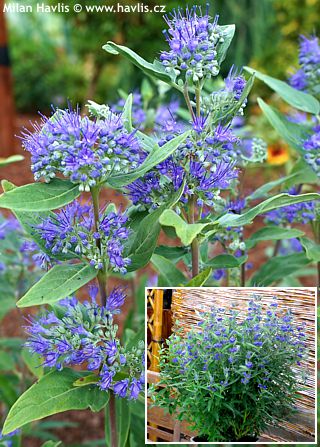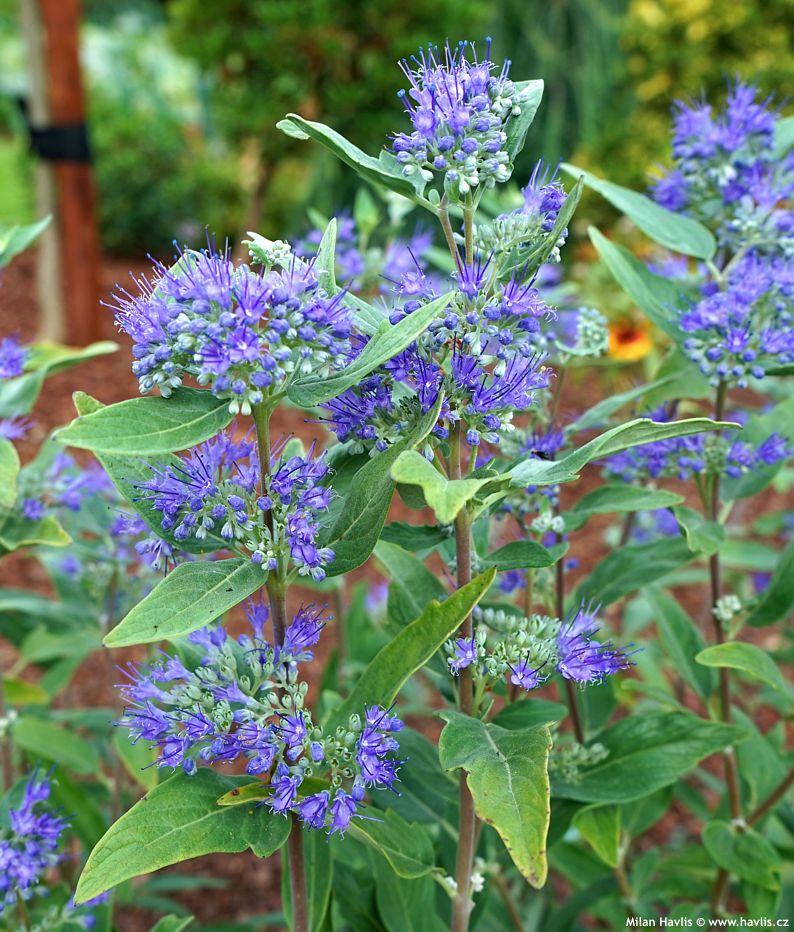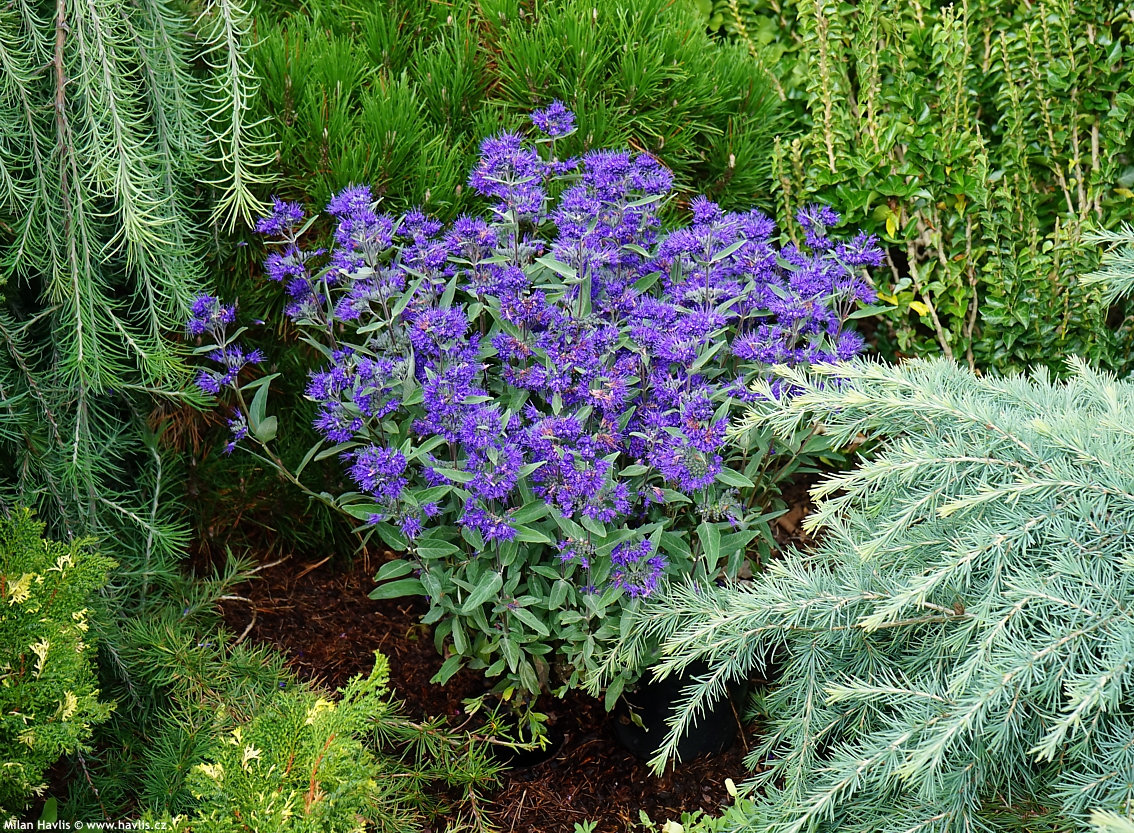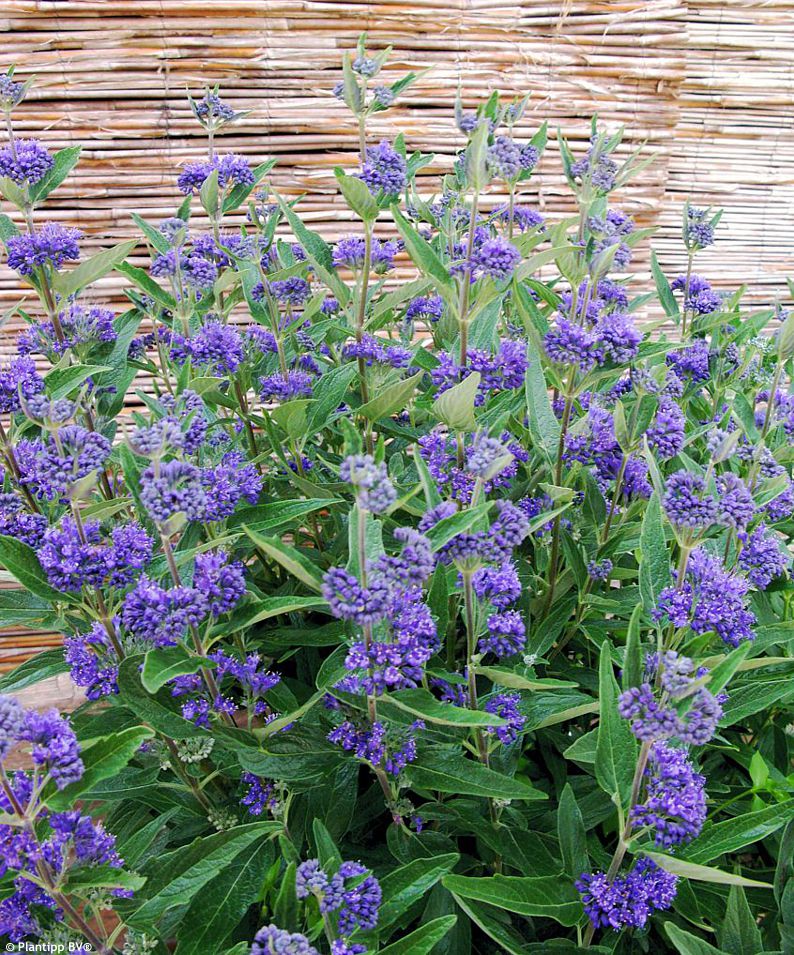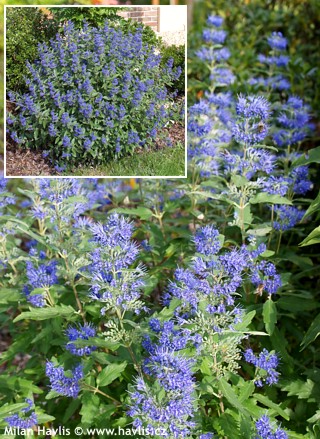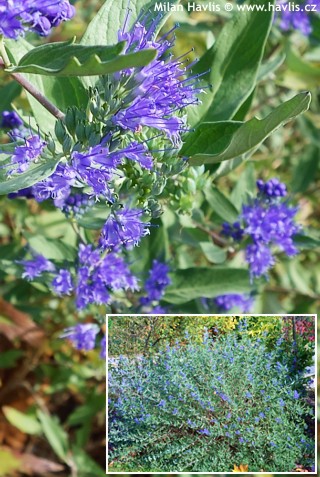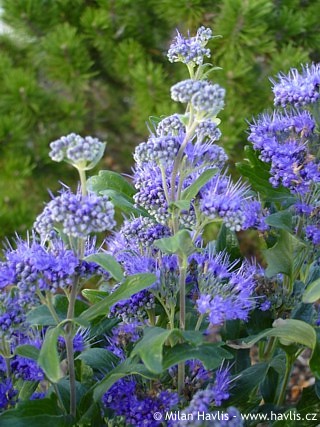Caryopteris x clandonensis 'Thetis' STEINTHE bluebeard
size/type
small shrub,small shrub
usual height
0,6-1m
usual width
0,5-0,6m
leaves
deciduous broadleaf
colour of leaves
flowers
showy
colour of flowers
blooming time
August-October
location
full sun
soil type
any (acidic to alkaline)
soil moisture requirements
evenly moist (dislikes drought)
USDA zone (lowest)
5 (down to -29°C)
winter protection
for zone 5+6

for zone 7

categorized
Caryopteris
Bluebeard is a small deciduous shrub for lovers of blue flowering plants. Its late summer and autumn flowers make it an ideal companion plant for perennial borders as it looks stunning situated close to black-eyed Susan, pink or white anemones, and even evergreen leucothoes whose leaves start to turn read when bluebeard’s blooming is at its peak. STEINTHE is a variety bred by Steinegger Bamschulen from Rheinfelden at German-Swiss border.Description of the plant:
STEINTHE bluebeard boasts compact and strictly upright growth without arching side branches. In late summer it produces a profusion of dark violet-blue flowers. They are composed in cymes and are always occupied by bumble bees, butterflies and similar insects. They keep on blooming until mid autumn on the background of healthy foliage which is highly fragrant when touched or crushed. The leaves are deciduous, lance-shaped, coarsely toothed when they emerge and almost entire up on the stems, medium to dark green. Thanks to its unusual foliage shape and colour it will look great combined with pastel-coloured perennials and small shrubs.Bluebeard is soil tolerant, however, it does best in fertile, very well-drained soil in full sun. It needs to be pruned hard every spring – cut off two thirds of previous year’s growth to encourage prolific branching that will secure even more profuse flowering. It is fully hardy to min. -25°C, in free-draining soil even to -27°C (USDA zone 5b). In zones 4 and 5a it acts like a perennial.
Last update 12-01-2020; 20-12-2023
QUICK PRICE OVERVIEW
CURRENTLY SOLD OUT
WANT TO TRY A SIMILAR PLANT?












